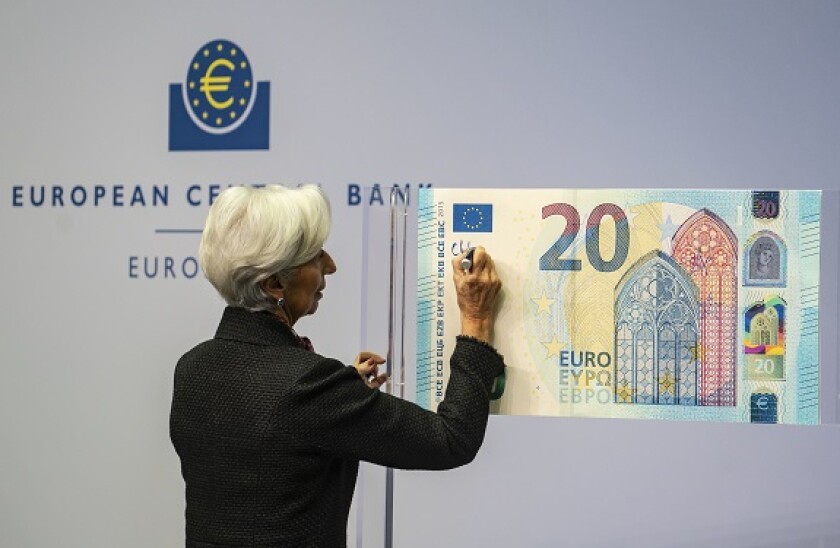The reputation of the major rating agencies was left in tatters following the global financial crisis of 2008.
Moody’s, Standard & Poor’s and Fitch were all roundly criticised for being asleep at the wheel, doling out high credit scores to issuers and assets that turned out to be very risky .
With a new economic crisis setting in as a result of the coronavirus pandemic, the big three rating agencies have seemed determined to make amends.
They have been acting much more quickly to identify vulnerabilities and to slash ratings where appropriate.
Unfortunately for them, however, none of that really matters this time around. All that anybody cares about now in Europe is the credit opinion of the European Central Bank.
If the ECB thinks it’s good enough to buy or hold as collateral, then it probably is.
In the past the central bank has marched to the beat of the ratings agencies’ drums.
But it changed the order of things when it decided on March 18 that it would buy Greek government bonds as part of its Pandemic Emergency Purchase Programme (Pepp).
Given that Greece is rated as low B1/BB-/BB, this was an unmistakable move into junk bond investing.
That decision has since been followed by further, similar action from the ECB.
Last week, for example, it decided that it would nullify the impact of ratings downgrades on the ability of banks to put up collateral between now and September 2021.
It said that it would carry on accepting assets during this time so long as they had met the minimum credit quality requirements as of April 7.
Market participants now expect the central bank will end up using the same criteria when it is looking to buy bonds through its emergency purchase programmes.
This would ensure that fallen angels end up falling straight into the arms of the ECB.
Moody’s, S&P and Fitch can’t really expect to compete with their new competitor.
A credit opinion from the ECB is invariably going to be more accurate and more timely, given that the opinion will itself have a direct bearing on credit quality.
It was obvious last Friday that the rating agencies simply don’t wield the power in the market that they used to.
S&P laid down its sword in keeping Italy at BBB, instead of moving the sovereign to one above junk.
Its reasoning was clear. If the country wants to add to its enormous stock of public debt, the ECB will be more than happy to support it.
“That commitment means that the Italian government will be able to finance itself at nominal rates of around 0.8% on average this year, compared to the 2.5% average borrowing rate on its existing debt stock,” S&P said.
Make no mistake that the ECB is now calling the shots in the ratings market.
And so far to date, amid economic chaos and plunging demand in the wider economy, it is showing absolutely no appetite for downgrades.

